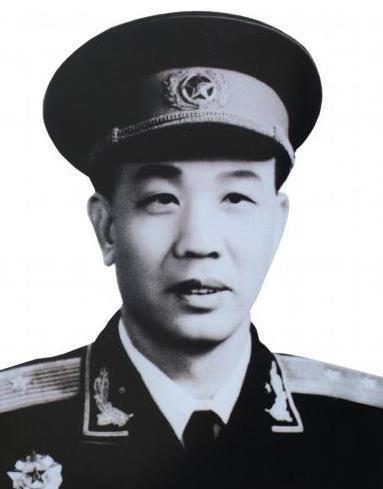It is said that Chinese culture is broad and profound, and it also depends on China's long history and vast land. Among the 34 provincial-level administrative regions in the country, everyone knows that the most economically developed is Shanghai, so where is the largest area? That is Xinjiang, which covers an area of 1.66 million square kilometers.

Speaking of Xinjiang, the first ruler we have to say is General Wang Zhen. In 1949, when Wang Zhen led his troops into Urumqi, Xinjiang declared that it had returned to the embrace of the people, and Wang Zhen took the initiative to ask Miao to be the first ruler of Xinjiang. But in 1953, Wang Zhen was transferred to the post of commander of the Railway Corps, and General Wang Enmao succeeded him as the ruler of Xinjiang, and he was the leader of Xinjiang for 20 years.
Wang Enmao, a newcomer to Yongxin, Jiangxi, was born in 1913 to a poor peasant family. In order to give his son a good education, his parents saved money and provided him with education. In 1927, Wang Enmao came to the Jinggangshan Revolutionary Base Area and joined the ranks of the Red Army. In 1930, Wang Enmao officially joined the Communist Party.
In 1934, Wang Enmao began the Long March with the Red Sixth Army of the Chinese Workers' and Peasants' Red Army, serving as the secretary of the Political Department of the Red Sixth Army. When recalling the Long March, Wang Enmao often said that he should thank the old leader Wang Zhen for his help, otherwise he might not live today.
I remember when I was in the Jade Dragon Mountain, the warriors were still wearing thin clothes, and as the altitude got higher and higher, the temperature became colder and colder, and there was snow everywhere. Many of the fighters couldn't resist falling, and they never got up again.
By the time the troops reached the Kangzang Plateau, the temperature changes were less terrible, and the hardest thing to survive was the lack of food. After the food was gone, they had to look for wild vegetables everywhere, and when it was most difficult, they also cooked belts and boots to eat. Once, they were attacked by the enemy, Wang Enmao's horses and grooms were killed by enemy planes, wang Enmao at that time was seriously ill and could not walk, Wang Zhen knew, specially transferred a mule and a groom to him, Wang Enmao only completed the Long March, he has always remembered the kindness of this old leader.
In fact, in Wang Enmao's revolutionary career, he experienced a total of "two Long Marches". The second time was in 1944, when the Party Central Committee formed the Eighth Route Army's southward detachment with the 359th Brigade as the main force to break through the Japanese blockade, and Wang Enmao was then the deputy political commissar of the 359th Brigade. After Japan surrendered, the troops continued south. After the outbreak of the all-out civil war, Wang Enmao broke through from the Central Plains with Wang Zhen's troops, fought bloody battles, experienced hardships and dangers, and returned to Yan'an in victory, known in history as the "Second Long March".
After the founding of New China, in 1949, Wang Enmao entered southern Xinjiang, and in 1952, he served as the first secretary of the Xinjiang Branch of the CPC Central Committee. Since the establishment of the Xinjiang Uygur Autonomous Region in 1955, Wang Enmao has successively served as the first secretary of the Xinjiang Uygur Autonomous Region Committee of the Communist Party of China and the commander of the Xinjiang Military Region. At the same time, Wang Enmao was awarded the rank of founding lieutenant general. In 1975, Wang Enmao was transferred to the Nanjing Military Region as deputy political commissar, and in 1981, Wang Enmao returned to Xinjiang to work.
Wang Enmao twice served as the ruler of Xinjiang, and during his reign he worked diligently, twice for 20 years. After returning to Xinjiang in 1981, he worked for five years before leaving. After leaving Xinjiang, in 1986, Wang Enmao was elected vice chairman of the National Committee of the Chinese People's Political Consultative Conference. In 2001. Wang Enmao died in Beijing at the age of 88.
Wang Enmao had 8 children in his lifetime, all of whom grew up in Xinjiang. Later, they also chose to contribute to the land of Xinjiang like their father. Among them, Wang Enmao's third son, Wang Beihui, has been working in the Xinjiang Military Region, and is the commander of the Southern Xinjiang Military Region or the rank of major general of the Chinese People's Liberation Army.